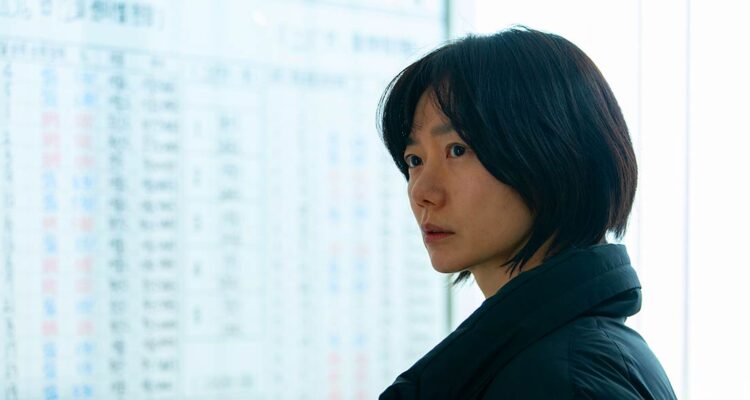Filmmakers seeking to denounce the crushing effects of capitalism often seem to rely on the excuse that if their films aren’t subtle, it’s because capitalism itself isn’t either. But such systems of exploitation probably wouldn’t still be around if, on top of having (very visible, obvious, violent) power on their side, the powers that be didn’t perniciously plant their hooks into the minds and hearts of their victims, making them do most of the work for them. This awareness of the ways in which we all take part in our own exploitation, sometimes unconsciously and against our best interests, is a defining aspect of our modern-day experience.
READ MORE: Cannes Film Festival 2022 Preview: 25 Must-See Films To Watch
“Next Sohee,” by South Korean director July Jung, focuses on a young female student named Sohee (Kim Si-eun) interning at a call center, who eventually succumbs to the pressures of the job. But rather than portray her experience there as one that slowly comes to affect her mind and priorities until her warped sense of priorities and self-worth leads her to end her life, the director opts for a less believable and more dramatic blunt-force approach.
As opposed to most of our (Western) understanding of burnout and unhealthy office practices, there are virtually no attempts here — subtle or unsubtle — from employers to sweeten the pill for their staff in order to better fool them into believing that if they feel bad, it is probably their own fault. Instead, the employees are in a constant state of suffering, victimization, and humiliation that is in no way softened or neutralized by any kind of elaborate office philosophy, small gifts, or office competitiveness. Physical and psychological pains are simply not acknowledged here at all.
Instead, whenever Sohee struggles to meet the demands of the job or complains about why interns only receive their overtime pay months later, her employer’s sole response is that she needs to think more about the team and not let all these other people down. Perhaps this community-oriented understanding of work and responsibility is cultural and therefore has less of a hold on audiences outside South Korea, but in any case, July Jung does not portray it as a belief system that everyone subscribes to — crucially, only the bosses ever talk about work this way, but the extent to which they actually believe in this set of priorities is never clear.
What is certain is that the rebellious Sohee does not buy into it, and her demise is less caused by shame than by her being in an impossible and unambiguously unfair situation. Mirroring her bosses’ own aggressive behavior, she physically and verbally assaults them, and the film’s simple exploration of a simple structure of exploitation is echoed in its characters’ only two modes: they often go from a calm conversation one second, to dramatic displays of violence the next. Evolving exclusively in this mode of indignation, “Next Sohee” is a very one-note exploration of a simple problem that has more complex repercussions than the ones we are given to see.
Unfortunately, the film belabors the point in its second half, following a detective named Oh Yoo-jin (Doona Bae, also seen in a similar role in Hirokazu Koreeda’s “Broker”) who investigates Sohee’s death and gradually uncovers the competitive performance-based system that eventually ground her down. Though Doona Bae’s performance is eminently watchable, it is difficult to believe that this straight-faced and unemotional policewoman would be discovering the realities of workers’ exploitation and unfair work contracts for the first time here. The film’s attempt at evoking both Sohee and Oh Yoo-jin’s shared humanity — they both took dance classes — feels rather trite, and both its overall emotional landscape and its study of exploitation are stuck in a rather monotonous sense of indignation and tragedy that ultimately feels frustratingly unproductive. [C]
Follow along with all our coverage from the 2022 Cannes Film Festival.

